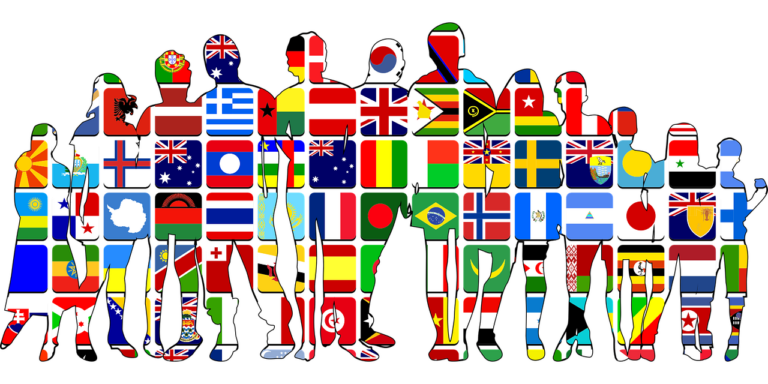When we talk about languages, it quickly becomes about communication, a way of exchanging meanings by responding to each other’s signals. We want to get a message across, and we do that by communicating with each other. This requires speaking and/or understanding a language, but not everyone can speak and/or understand all languages. Communication skills remains the essential need to convey and understand the message.
In this post we will be inspecting communication in general, Business Communication in particular and we will understand why translation plays a key part in communication between enterprises and companies:
Business Communication and its Importance
Businesses have a need to deal with communication. They also sometimes come up short when talking about knowledge in the field of communication. Within companies we then talk about business communication, which has a slightly specified meaning compared to communication.
When we talk about business communication, we mean the process of exchanging information with people who are involved in the company in some way. These can be people who work within the company, such as employees. But also, people who are active outside the company or important in some other way, such as customers.
Communication plays a very large, but certainly important, role in any company. Everything revolves around communication, you can almost say that the company is built on it.
Business communication can play an important role in almost everything inside and outside a company. Good business communication can help you improve the efficiency and productivity of your business and can lead to more innovation, among other things. This all sounds very nice, but within communication, language plays the biggest role.

5 Most Important Communication Languages for Business Expansion
In this article, we will discuss the 5 most important communication languages for companies. The exact numbers can sometimes vary slightly as these values can change very quickly taking into account various factors. Therefore, it is now time to look at the 5 most important communication languages for companies.
1. English
The English language is currently spoken by more than three quarters of the world’s population. For The language is used in 94 countries and spoken by about 1.35 billion people worldwide. This includes about 373 million native speakers, which means that the language has almost one billion non-native speakers. It is the most influential language in both science and business, making English the most important language of communication for companies.

2. Mandarin
Mandarin has the largest number of native speakers in the world, we are talking about 1.1 billion people. It is by far the most spoken language in the world after English, but unlike English speakers, many Mandarin-speaking Chinese are located in China.
But China is on the rise, recording the highest growth rates, being the world’s second largest economy and analysts predict it will be the largest by 2050. Chinese Mandarin is and will become a very important communication language for businesses.
3. Spanish
The Spanish language has a large number of native speakers, but also quite general speakers. There are currently about 559 million Spanish speakers worldwide, of whom 475 million speak Spanish as their mother tongue.
This makes it the second most spoken language after Mandarin, with most Spanish-speaking countries located in South and Central America.
But there are also many Spanish speakers in the USA. More than 40 million Spanish speakers live there, making it the second largest Spanish-speaking country in the world.
Considering that the USA is currently the largest economy in the world and its population is expected to double by 2050. The importance of the Spanish language is growing, making it more important for businesses.
4. Arabic
The Arabic language, a very complex language with a long history, but at the same time the language that is making a comeback in the 21st century. It is an official language in 28 countries and is spoken by over 400 million people, 313 million of whom speak Arabic as their mother tongue.
According to the British Council, Arabic is the fourth most important language of the future, considering factors such as interest in the language, international engagement in education and the growth of emerging economies.
This makes Arabic currently the fourth most important language of communication for businesses.

5. German
And finally, the German language, the fifth most used language in business. The language has a total of more than 210 million speakers around the world and almost 100 million native speakers and is mainly spoken in Central Europe.
Germany has the largest population in all of Europe, it has the largest economy, making it the fifth largest economy in the world. Just to illustrate why mastering the German language is so important for businesses.
Wrap up
How important it is for companies to master a language cannot be put into words. Communication within a company, but also to the outside world, is very important. The message has to be conveyed, and for that you have to master the language in which you have to communicate at the moment. Which of these 5 most important communication languages will play a relevant role in your company?
Thank you for reading! In our blog you will find more free articles on topics related to languages, language learning and translation.






